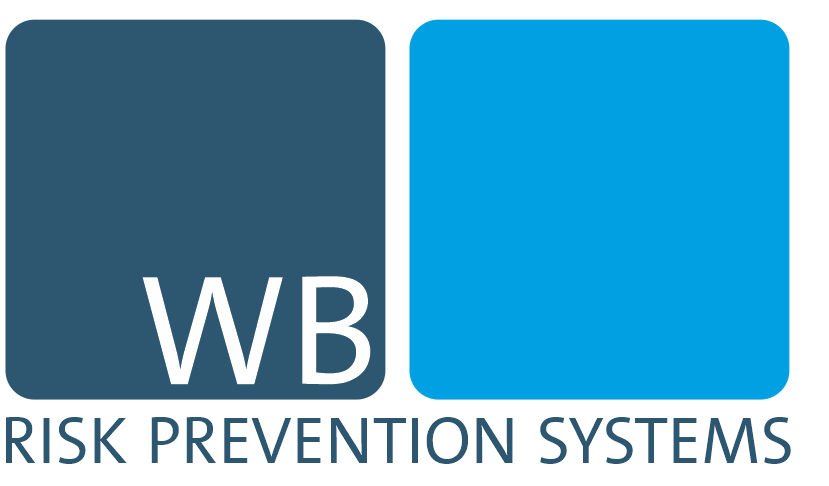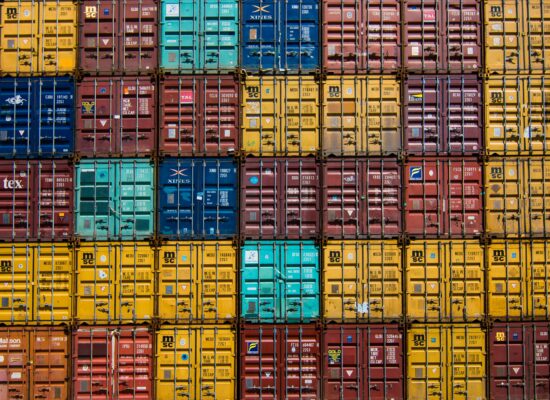Ein Blick über die Kernfrage nach Verfügbarkeiten der Energieversorgung und steigenden Kosten hinaus.
Die Energieversorgung ist aktuell aus den Schlagzeilen nicht wegzudenken. Steigende Kosten und drohende Versorgungsschwierigkeiten sind Themen, die tagtäglich in den Medien präsent sind und alle Menschen wie Unternehmen betreffen.
Die Energieversorger und Netzbetreiber haben zurzeit vieles zu tun und stehen im besonderen Fokus des öffentlichen Interesses: Was würde im Falle des Ausrufens der Alarmstufe oder der Notfallstufe des Notfallplans Gas passieren? Wie wären wir auf ein Gas-Embargo seitens der EU oder ein Lieferstopp seitens Russlands vorbereitet? Wie ist der tagesaktuelle Füllstand der Gas-Speicher? Wer würde dann noch versorgt oder in welcher Reihenfolge abgeschaltet werde?
Und wie entwickeln sich die Preise, die ja auch bereits vor der russischen Invasion schon 2021 überproportional gestiegen sind? Was machen wir mit diesen Mehrkosten?
Versorger arbeiten auf Hochtouren
Kompetente Fachexperten:innen der Versorger arbeiten auf Hochtouren in verschiedenen Gremien sowie innerhalb ihrer Unternehmen, Verbände oder auch im Austausch mit Großkunden:innen an den verschiedenen Szenarien und Lösungsansätzen. Die Ausgangslage ist so komplex, dass abstrakte Szenarien kaum geplant und entsprechende Vorgaben – wie z.B. konkrete Abschaltreihenfolgen – zurzeit nicht sinnvoll gegeben werden können. Die Einflüsse sind einfach zu vielfältig: wie z.B. Witterungsbedingungen, künftige Füllständige der Gasspeicher, künftige Einsparungen durch die Bevölkerung und Industrie, aber auch mögliche volks- und betriebswirtschaftliche Schäden, Bedeutung von Firmen für die Grundversorgung der Bevölkerung z.B. mit Lebensmittel und Medikamenten, Mangellagen bei den europäischen Nachbarn, Regressansprüche und Schadenersatzforderungen.
Gemäß Alexander von Humboldt hängt eben “Alles mit Allem zusammen”. Daher werden die Experten:innen der Energiewirtschaft mit der konkreten Planung der möglichen Versorgungsengpässe bzw. mit dem Aufbau einer guten Datengrundlage für spätere Entscheidungen momentan mehr als ausgelastet sein.
Deswegen wollen wir als WB Risk Prevention Systems einen Blick wagen, der die oben genannten Themen ergänzt und dort ansetzt, wo die aktuell vordringlichen Fragen aufhören.
Über den Tellerrand hinausblicken
Wir sind keine “Gas-Experten” und wollen daher bewusst keine Ratschläge entwickeln für Themen, die die Versorger oder die Bundesnetzagentur viel besser beherrschen als wir. Demgegenüber wollen wir aber auf mögliche „Nebenwirkungen“ hinweisen, die wahrscheinlich in der Bearbeitung der aktuellen Aufgaben (noch) im Hintergrund stehen und deswegen vielleicht noch nicht mitgedacht werden:
a) Mögliche Preissteigerungen können zum Sicherheitsrisiko für Beschäftige der Versorger/Netzbetreiber werden
Gerade mit Blick auf die Gesellschaft drohen den Energieversorgern Risiken, die sich in den kommenden Wochen und Monaten zuspitzen könnten und an die zurzeit kaum jemand denkt. Anwachsende Kosten für die Energieversorgung bei einer gleichzeitig grundsätzlichen Verteuerung der Lebenshaltungskosten befeuern vielleicht die ohnehin schon kürzere Zündschnur der Gesellschaft. Unsere erst kürzlich erschienene Analyse bestätigt, dass vor allem während der letzten beiden Pandemie-Jahre die Gewaltbereitschaft bei breiten Teilen der Bevölkerung deutlich gestiegen ist. Diese kurze Zündschnur der Menschen beschränkt sich aber nicht auf Sport- oder Musikveranstaltungen. Streitigkeiten an der Kasse im Supermarkt, Pöbeleien im Nahverkehr oder eben der Frust über stetig ansteigende Preise könnte weiter zunehmen.
Könnte es dann passieren, dass die wachsende Wut Menschen vor die Türen der Stadtwerke / Energieversorger führen wird? In dem Moment könnten die Mitarbeiter:innen schnell in den Fokus geraten und zur Zielscheibe der Aggressivität werden. Welche präventiven Maßnahmen müssen schon heute ergriffen werden, um die Belegschaft dann schützen zu können?
b) Mögliche Preissteigerungen können zu Cashflow-Problem bei den Versorgern führen
Weiter ansteigende Kosten könnten dazu führen, dass immer größere Teile von Mietern:innen und Eigentümern:innen die Energiekosten nicht mehr zahlen können. Auch dieses Szenario sollte bereits jetzt mitgedacht werden. Wie wären die Auswirkungen auf den Cashflow der Energieversorger und die Liquidität spätestens im Herbst? Wer würde Liquiditätsengpässe wie überbrücken oder auffangen können?
c) Möglicher Druck auf die Entscheider:innen und Geschäftsführung durch Lobby und betroffene Unternehmen
Daneben wird es aber auch einen Druck „von Oben“ geben, der sich insbesondere auf der Führungsebene der Versorger, also in den Reihen der Geschäftsführung und/oder im Aufsichtsrat zeigen und aus den „eigenen Kreisen“ kommen wird.
Die guten Verbindungen zur Industrie, aufgebaut über Netzwerke und Verbände, persönliche Kontakte, Mitgliedschaften in lokal relevanten Vereinigungen (Rotary, Lions, Freimaurer, stud. Verbindungen, Karnevalsvereine etc.), werden in der Not schnell genutzt, um „Gefallen“ einzufordern. Hier schlagen wir schon heute Alarm: Das Korruptionsrisiko wird steigen und Präventionsmaßnahmen, wie beispielsweise der Einsatz einer weiteren Person mit “Filter-Funktion”, die zwischen den Kunden und der Geschäftsführung steht, könnte sinnvoll werden. Schon jetzt sollten passende Personen innerhalb der Unternehmensorganisation identifiziert und geschult werden.
d) Fehlende Offenheit im zwingend erforderlichen Austausch aller Beteiligten
Offene Kommunikation und “echte” Mitarbeit der beteiligten Stakeholder ist ein entscheidender Teil der Risikoprävention. Dieser Satz ist so selbstverständlich, dass man ihn kaum nennen müsste. Er erlangt aber dann plötzlich an Relevanz, wenn sich konkrete Bedrohungen oder eine Mangellage am Horizont abzeichnen, denn dann bricht plötzlich “echte” Offenheit und Transparenz der Stakeholder (also auch der wichtigsten Kunden:innen und Lieferanten:innen) weg.
Denn, wenn ein Notfall als “realistisches Szenario” angenommen wird, kommt es in der Praxis häufig zu einer Mischung aus a) „Ellbogenmentalität“: Alle kämpfen um ihr eigenes Überlegen und jeden Vorteil, den sie bekommen können, sowie b) “Sicherung der eigenen Verhandlungsposition”: Wo Kompromisse erforderlich werden, beanspruche ich eine extremere Position, als eigentlich nötig wäre, damit ein späterer Kompromiss für mich weniger schädlich als eigentlich ertragbar wird. Deswegen sitzen im Hintergrund Rechtsabteilungen mit am Tisch, um juristische Positionen und Regressansprüche zu sichern. Diskussionen finden mehr auf problem- denn lösungsorientierter Ebene statt.
Wir kennen solche (Notfall-)Verhandlungssituationen aus diversen Emissär-Tätigkeiten bei vielfältigen Projekten aus Asien. Sei es bei Streitigkeiten innerhalb von Unternehmen, zwischen Unternehmen und Staat oder zwischen Versorgern und Kunden:innen: Je bedrohlicher die Lage wird, desto weniger arbeiten alle Beteiligten noch an einem gemeinsamen Plan, sondern sind eher darauf fokussiert, für den Fall der Fälle beispielsweise als „besonders wichtig für das Gemeinwohl” eingestuft zu werden oder durch die Skizzierung von Horrorszenarien (z.B. Massenarbeitslosigkeit) besondere Priorität zu erlangen.
So ähnlich, wie der “heiße Draht” einmal eingerichtet wurde (und auch aktuell wieder zwischen Russland und dem Europahauptquartier der US-Streitkräfte betrieben wird), um mittels direkten Austausches zwischen den Generalstäben Missverständnisse und Irrtümer zu verhindern, kann man darüber nachdenken, entsprechende informelle Informationskanäle aufzubauen. Abseits der formalen Verhandlungspositionen kann so eine pragmatische Planungsebene der Stakeholder entstehen.
Im Dialog mit einem externen Sounding Board
Externe Sounding Boards, die bewusst nicht aus dem Bereich „kommunale Versorger“ stammen, ermöglichen einen Blick über den Tellerrand der Energiewirtschaft hinaus.
Mit hervorragender Kompetenz im eigenen Bereich aufgestellt, gibt es Entwicklungen und Beispiele aus ganz anderen Branchen oder Regionen der Welt, die in Teilen übertragbar sind oder zumindest interessante Hinweise geben können. Nicht als Ersatz, sondern als Ergänzung.
Sie sind Versorger oder ein Unternehmen, das den Blick über den Tellerrand wagen und mit uns in einen kreativen Austausch gehen möchte? Sie brauchen ein externes Sounding Board oder haben Fragen zu dem Thema? Schreiben Sie uns und wir melden uns zeitnah bei Ihnen. Oder rufen Sie uns einfach an +49 234 9041836-30
[contact-form-7 id=“3992″ title=“Kontaktformular 1″]





